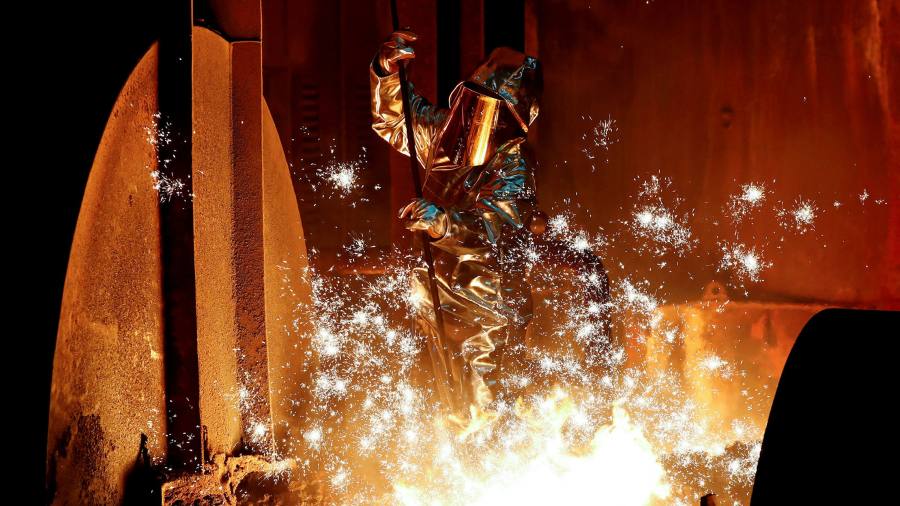[ad_1]
Thyssenkrupp has broken off talks with British tycoon Sanjeev Gupta’s Liberty over the sale of the German group’s steel unit, saying the parties were “far apart†in their plans for the beleaguered business.
The Essen-based company, which is also considering a spin-off of the steel works, said it would now develop the division using its own funds.
“We opened the door for negotiations, but in the end our ideas about the corporate value and the structure of the transaction were far apart,†said Klaus Keysberg, Thyssenkrupp chief financial officer.
“We regret this step because we perceived Liberty Steel as a serious partner in the process,†he added.
Liberty said the discussions had been “suspended at this stage due to differences in pricing expectations†but that it remained confident its offer was “the only long-term sustainable plan†for Thyssenkrupp’s steel unit.
As well as not being able to agree on the sale sum, Gupta’s company was yet to secure adequate financing for the deal, said two people familiar with the matter.
Thyssenkrupp, once Germany’s largest industrial conglomerate, has been slimming its business after years of heavy losses.
Last year, it sold its highly-profitable lifts and elevators business for more than €17bn to a consortium of private equity groups, in order to pay off mounting debt and pension liabilities.
After a merger with India’s Tata was blocked by the European Commission in 2019, Thyssenkrupp had also been exploring options for its Duisburg-based steel business, which lost almost €1bn last year.
Gupta launched an audacious bid for the unit last October via GFG Alliance — a loose collection of family-owned businesses active in areas from metals to banking that has expanded rapidly through takeovers to reach a turnover of $20bn.
The deal would have merged Europe’s fourth- and second-biggest steel producers. However, the approach was immediately opposed by unions representing many of Thyssenkrupp steel’s 27,000 employees, who raised questions about job security in the event of a “foreign†takeover.
The sustainability of GFG’s funding model — relying on opaque forms of funding linked to invoices — was also of concern to workers’ representatives, who sit on Thyssenkrupp’s supervisory board.
In a statement on Thursday evening, Thyssenkrupp said that “no common solution could be found for key requirements†addressed by the company.
The German group had previously disclosed that keeping its steel unit competitive would require investments of about €570m a year, while a further €800m was needed over the next five years to modernise its facilities.
The division received a shot in the arm over recent months, as metal prices rose sharply thanks to strong rebounds in the car and manufacturing sectors.
Orders for the last three months of 2020 were 17 per cent higher than the year before, while sales rose 7 per cent in the same period.
[ad_2]
Source link





